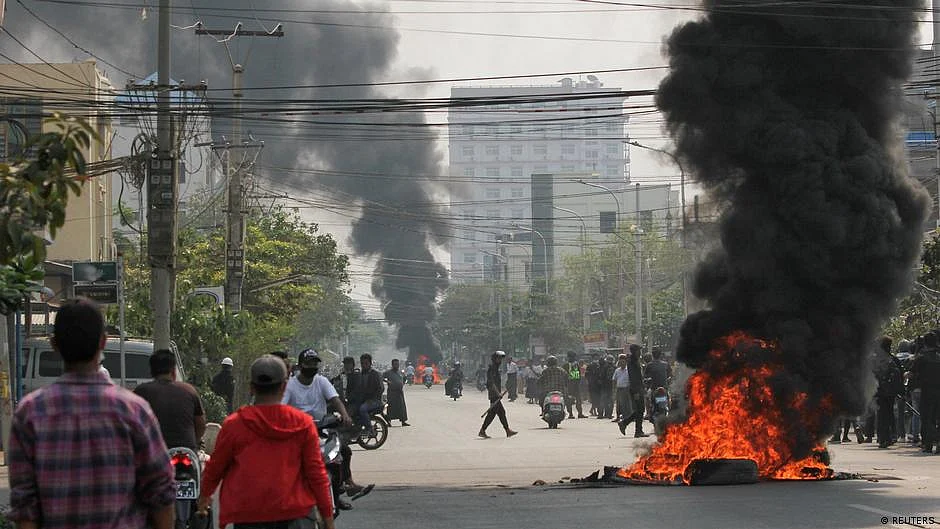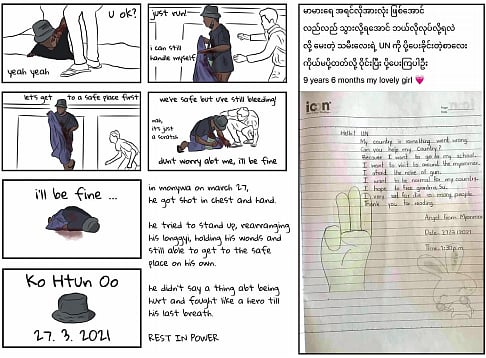Myanmar heading for a civil war as ethnic armies join hands against the military
With over 500 civilians killed by the military, at least 30 of them children and some as young as five and seven years old, civil disobedience by people shows no sign of abating

The weekend saw fighter jets and bombers of the Myanmar Air Force strafe and bomb civilian population in the south eastern Karen state bordering Thailand. The bombing took place at night and in retaliation to the Karen National Union’s militia capturing an army outpost and left several civilians dead.
Myanmar’s Air Force comprise around 25,000 personnel and boasts of having over 112 fighters and bombers besides 100 helicopters. The size of the entire defence forces is estimated to be 3.5 lakh.
The Civil Disobedience Movement in Myanmar has appealed for support to the ethnic military groups. The movement promises to frame a federal constitution for the country and form a ‘federal army’ comprising all minority groups. Interlocutors have reached out to even Rohingyas and declared that they should not be called ‘Bengalis’ anymore.

The Karen National Union (KNU), one of the strongest groups has acknowledged that its troops are attacking Myanmar army positions and cutting off supply routes. In the north, the Kachin Independence Army (KIA) has staged similar attacks. Both have indicated that they are sending their fighters to protect the protesters against the military. Three other guerrilla forces, including the Arakan Army in the western Rakhine state, have also vowed to join what is now described as the “spring revolution”.
Leaders of KNU and the Restoration Council of Shan State (RCSS), maintained that the military had destroyed the ceasefire deal – known as the National Ceasefire Agreement - by launching attacks. The deal was struck in 2011 as Myanmar experimented with free elections and democracy. Three groups - the Myanmar National Democratic Alliance Army, the Arakan Army (AA) and Ta’ang National Liberation Army - called upon the military to stop killing protesters. If not, they said they would cooperate with all ethnic groups “who are joining Myanmar’s spring revolution”.
Anthony Davis, a security analyst with British-based Jane’s intelligence company, estimated the total strength of the ethnic armies in Myanmar at around 75,000, enough to stretch the 350,000-strong Myanmar army if it was forced to fight on multiple fronts.
“If the Kachin, Karen, Shan and maybe Rakhine insurgents were to engage in widespread military operations, however loosely coordinated, and at the same time there is an increase in violence in the heartlands, the Tatmadaw would face a huge problem,” he said.
Protest Movement leaders and lawmakers, most of whom are in hiding, announced plans to form a “national unity government” on April 1 - with key roles for ethnic leaders - and are holding online talks about organizing joint resistance to the military junta.
Protests meanwhile continue in Myanmar with candle light vigils, black flag marches and dumping streets with garbage as a show of defiance. As part of the resistance, people have stopped buying government lottery tickets, an important source of revenue for the government.
“I can’t afford to continue selling lottery tickets; it’s a big loss,” a lottery seller told a regional newspaper adding, “I’m going to sell eggs instead.” Customers, she said, had no interest in buying lottery tickets till the military is in power.
Follow us on: Facebook, Twitter, Google News, Instagram
Join our official telegram channel (@nationalherald) and stay updated with the latest headlines
